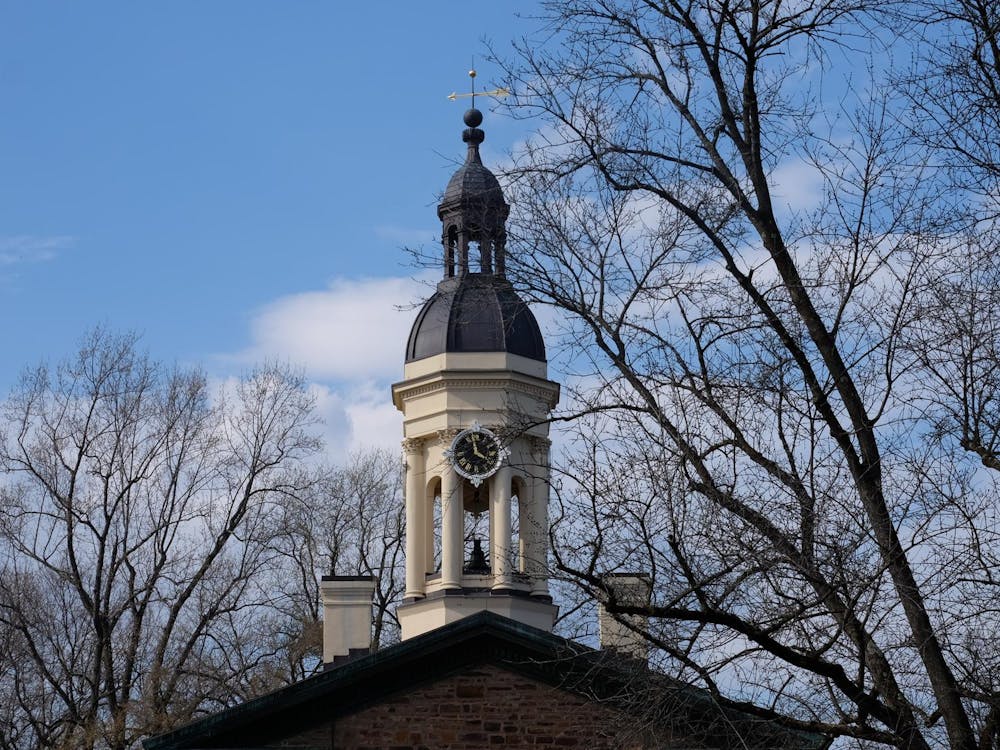Republican Congressional nominee David Brat is not the first individual to have made the assertion that he was educated in Princeton – the town, that is – while remaining ambiguous about the exact institution that he attended.
Brat, a little known economics professor at Randolph-Macon College, rose to prominence earlier this week after a surprise victory over House Majority Leader Eric Cantor in a Virginia Republican primary. Cantor is not only a leading Republican figure but had also outspent Brat 26-1 during the campaign.
The scenario immediately following the election — where the media scrambled to piece together the few details available about Brat’s life — highlights thegray areasthat exist between the town of Princeton and the handful of educational institutions that it hosts and share its name. While these institutions may own trademarks, the name match between town and gown makes it easy to exploit this ambiguity.
According to hisofficial campaign biography, a young Brat had “tested his rural values against the intellectual elite while at Princeton and against the powerful elite at American University."
The ambiguity was reflected in a number of media outlets.In election night coverage,The Washington Post,NBC News,Time Magazineand TheDaily Callerall referred to Brat as having graduated with a master’s degree from “Princeton,” without specifying which “Princeton” institution they were referring to.
For example, the Time article’s lede read: “The bespectacled college professor who toppled House Majority Leader Eric Cantor in a Republican primaryTuesdayearned a masters of divinity from Princeton with a thesis on the philosophical doctrine of logical positivism.”
This mistake had not been made prior to the election. A review of stories filed before election day showed that only theSouthern Political Reporthadreferred to Brat as having graduated from “Princeton” instead of the “Princeton Theological Seminary.”
That evening, the University first tweeted at8:46 p.m.that it did not offer a master of divinity program. When a user pointed out Brat’s biography, the University took until the next morning to reply. “Thanks. We had not seen this,” a tweet read.
University Spokesperson Martin Mbugua said the University received around three media inquiries asking about Brat’s education. “It wasn’t that major, but the inquiries came on the same day,” he said.
A spokesman for the Princeton Theological Seminary said the institution always refers to itself by either the full name, ‘Princeton Seminary’ or ‘PTS.’
“It is of course fairly common for members of our community to use ‘Princeton’ as an informal shorthand way of referring to our school,” Shane Berg, vice president of communication and external relations at the Seminarysaid. “Most of the time when people use ‘Princeton,’ the context makes it clear that we are talking about the seminary and not the University.”
Brat’s campaign did not respond to a request for comment.

Princeton University does not gather or maintain statistics on alleged misrepresentation of attendance at the University, Mbugua said.
“[People occasionally] make an association between the institutions here in Princeton — an incorrect association,” Mbugua told The Washington Post.
Brat isn’t the first congressional candidate to draw attention for his use of the Princeton name.
Christine O’Donnell, the 2010 Republican nominee for the U.S. Senate from Delaware, filed a lawsuit in 2005 against the Intercollegiate Studies Institute that was predicated in part on the claim that she was pursuing a master’s degree at the University and that her allegedly wrongful termination was preventing her from completing a graduate degree from the University,CNNreported in 2010.
However, O’Donnell had never taken any graduate courses at the University and had only audited one undergraduate class.
Beyond just the use of the University’s name, it has happened that people have actually forged transcripts to create a false association with the University.
Thieves broke into the University Registrar’s office in June 1991 and obtained the materials necessary to manufacture a perfect replica of a University transcript, the Philadelphia Inquirerreported.
“The machine used to imprint the university seal, about 200 sheets of official transcript paper and the rubber stamp bearing the registrar’s signature were stolen,” the article read. “Princeton Borough police are investigating the theft, which enables the recipients to forge perfect replicas of an authorized Princeton transcript.”
The University then updated its transcripts to include additional security features, according to an article in The Daily Princetonian from Sept. 1991.
In the case of organizations, the University evaluates the use of the Princeton name on a case-by-case basis, University General Counsel Peter McDonough told the ‘Prince,’according toaMay 11article.The similarity between an outside organization’s services and those of the University, as well as the quality of the organization’s services are key factors the University considers, he explained.
However, he did not address alleged misuse of the Princeton name by individuals.
McDonough deferred comment to Mbugua for this article, who said the University will not take any legal action in this case.







